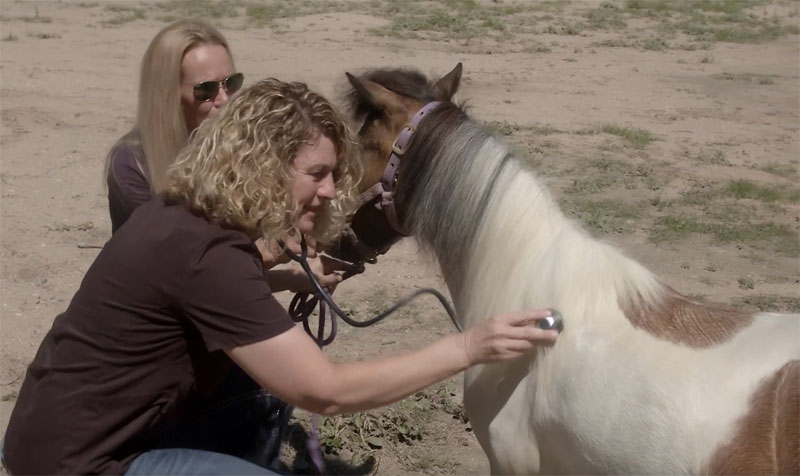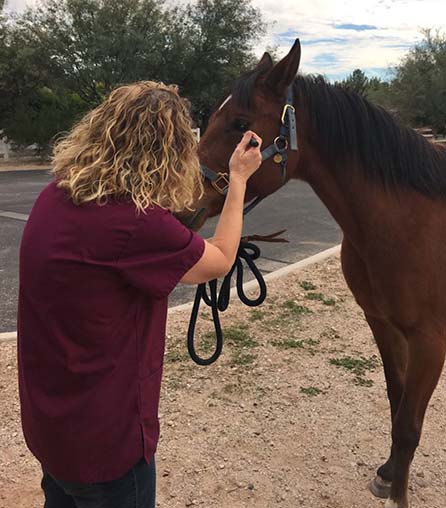
Gastric Ulcers & Your Equine Companion: Understanding, Preventing, and Seeking Care
Gastric ulcers are a common yet often misunderstood ailment among horses, causing discomfort and potentially serious health issues for our equine companions. As responsible horse owners, it’s crucial to educate ourselves about gastric ulcers, recognize their symptoms, and take proactive steps to prevent them.
Understanding Gastric Ulcers In Horses
Gastric ulcers occur when there is damage to the lining of the stomach, typically due to an imbalance in acid production and protective mechanisms. Horses are particularly prone to gastric ulcers due to their unique digestive system, which continuously secretes gastric acid regardless of whether they are eating. Factors such as stress, intense exercise, changes in diet, and limited turnout can contribute to the development of ulcers in horses.
Symptoms of Gastric Ulcers in Horses
Identifying gastric ulcers in horses can be challenging, as symptoms may vary in severity and can mimic other health issues. Some common signs of gastric ulcers in horses include:
• Changes in Appetite: A noticeable decrease in appetite or reluctance to eat, especially during meal times.
• Weight Loss: Unexplained weight loss despite adequate feeding and management.
• Behavioral Changes: Increased irritability, aggression, or signs of discomfort, such as teeth grinding or pawing at the ground.
• Poor Performance: Decreased performance during training or competition, including reluctance to work, decreased stamina, or refusal of jumps or obstacles.
• Poor Coat Condition: Dull or patchy coat despite proper grooming and care.
• Colic Symptoms: Recurrent episodes of mild to moderate colic, such as intermittent abdominal pain, pawing, or lying down frequently.
Preventing Gastric Ulcers in Horses
While gastric ulcers can be prevalent in horses, there are several steps owners can take to help prevent their development:
1. Provide Frequent Access to Forage: Allow horses to graze or provide hay throughout the day to maintain a steady flow of saliva, which acts as a natural buffer against gastric acid.
2. Minimize Stress: Implement regular turnout, maintain consistent feeding schedules, and provide a calm environment to reduce stress levels.
3. Balanced Diet: Ensure horses receive a well-balanced diet with adequate roughage and limited reliance on high-starch concentrates.
4. Supplementation: Consider feeding supplements containing ingredients like magnesium or aloe vera, which may help support gastric health.
5. Medication: In consultation with a veterinarian, consider using medications such as proton pump inhibitors or histamine receptor antagonists to reduce gastric acid production during times of increased risk.
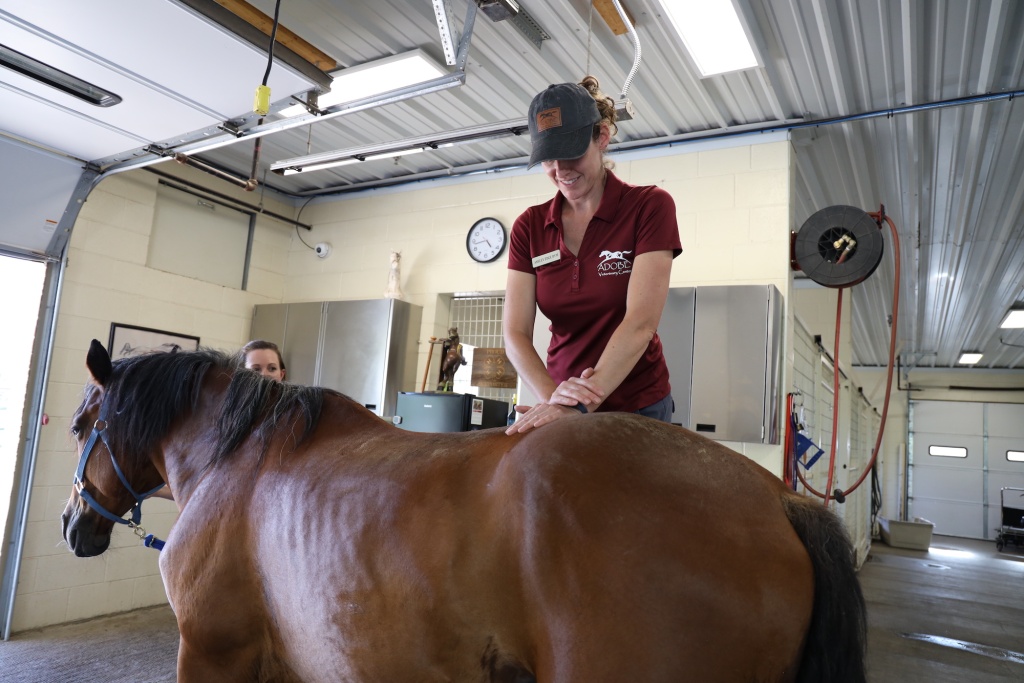
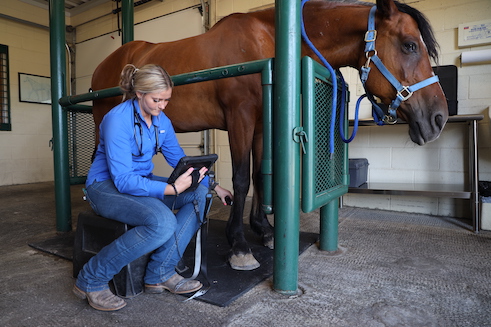
Your Trusted Partner in Equine Health: Schedule an Appointment with Adobe Veterinary Center Today
For equine owners in Tucson, Arizona, Adobe Veterinary Center stands as your trusted partner in ensuring the health and well-being of your four-legged friends. With our team of experienced veterinarians specializing in equine medicine, we offer comprehensive diagnostic and treatment options for gastric ulcers and other equine health concerns. Schedule an appointment with our equine specialists at Adobe Veterinary Center, so you can rest assured that your horse will receive the attention and treatment they deserve to thrive.


